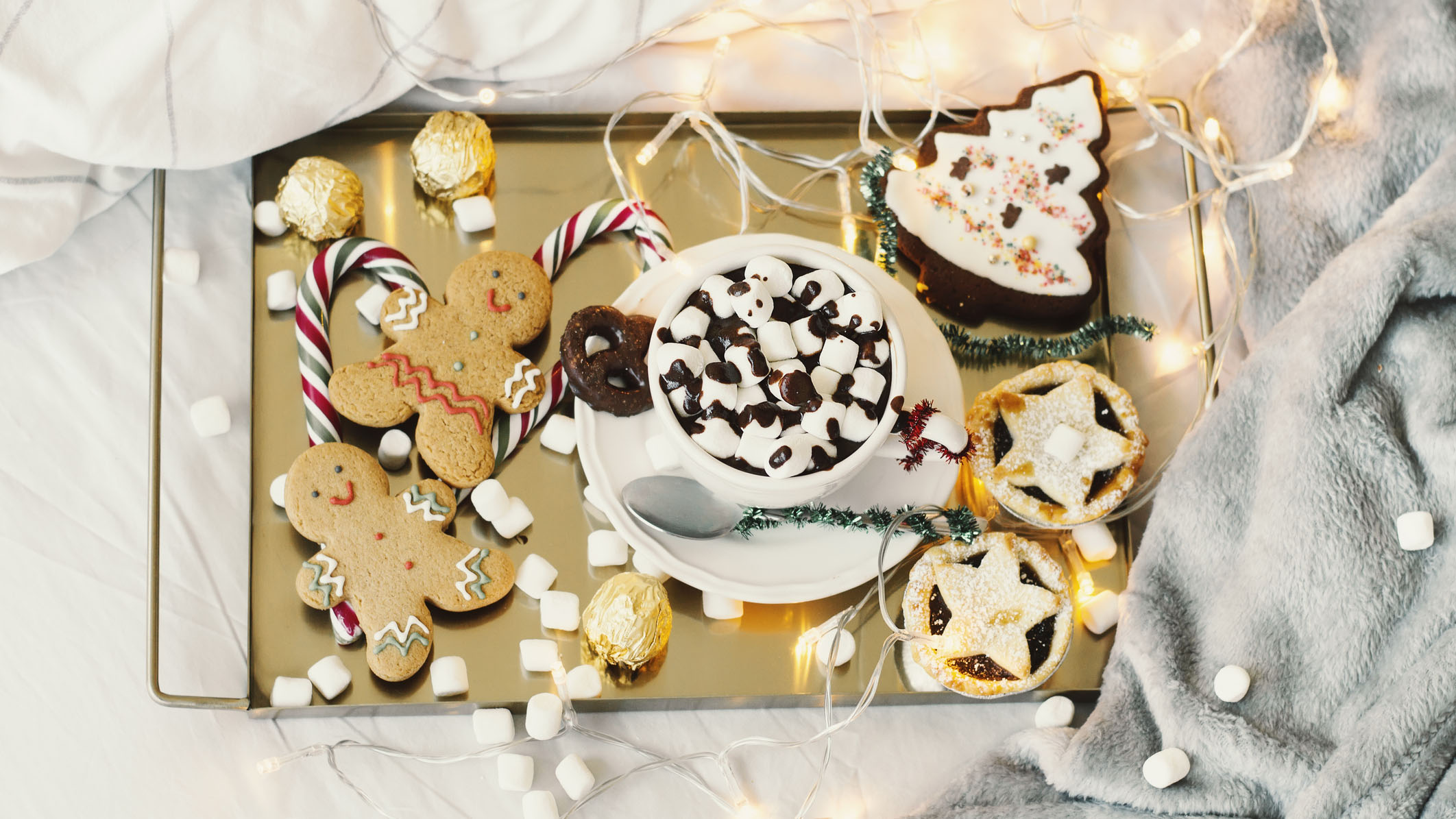
Are you stocking up on festive foods this weekend, ready for the big day? If you're having trouble sleeping, you might want to read this first before loading up on the gingerbread cookies and mince pies. Because while turkey dinners and Christmas pudding are holiday traditions, what impact do our favourite festive foods have on our sleep?
Alex Ruani, Chief Science Educator at The Health Sciences Academy, and Anna Mapson, Registered Nutritional Therapist from Goodness Me, both consultants at MattressOnline, have answers.
Here they reveal the best festive food for sleep and the foods and drinks that lead to night wakings and broken sleep – even the best mattress for your body won't save you there. Someone pass the veggies but hold the mince pies...
The best festive foods for sleep
1. Roasted vegetables
Santa’s reindeers are on to something. Turns out, carrots and brussel sprouts are not only a great side to your Turkey or nut roast, but they’re also good at helping you fall asleep. Ruani and Mapson explain that roasted vegetables produce melatonin, a night time hormone that can ease sleep issues such as jet lag and insomnia.
“Although they get a bad reputation, they are vital to our diets and can help us sleep better,” say the nutritional specialists. “Opting for complex carbs such as roasted vegetables, whole grains or starchy vegetables can avoid spiking your blood sugar and lead to a much more restful night's sleep."
2. Turkey and nut roast
Another Christmas staple that produces melatonin is the classic Turkey dinner. Ruani and Mapson say this is because they are a leading source of B vitamins. “Even a slight deficiency in B vitamins can lead to disrupted or lower-quality sleep,” they explain.
“Of course, Christmas time has an abundance of turkey, making that leftover Christmas dinner sandwich an excellent choice for a Boxing Day snack.”
If you're a vegetarian or vegan and avoiding Turkey and other poultry, the nutritional specialists recommend incorporating high-quality protein sources in each meal, including foods like nuts and lentils. So tuck into that nut roast; your future-rested self will thank you.
3. Plant-based festive food
Some more good news for herbivores this Christmas: “While the body can produce melatonin, it's interesting to note that certain foods also possess melatonin and its natural soothing properties,“ the nutritional specialists reveal.
“Plant-based foods, in particular, are rich sources of melatonin, including vegetables (particularly peppers), mushrooms, legumes (beans and lentils), and select berries (such as sour cherries)."
The worst festive foods for sleep
1. Mince pies (and other sugary desserts)
‘Tis the season to eat chocolate. Or maybe not, if you’re looking to fall asleep easily and for longer. ”Sugar has been linked to disturbed sleep patterns and more restlessness during sleep,” warn Mapson and Ruani. “Consuming sugary foods like cookies and sweets late at night can disrupt our blood sugar levels, making it difficult to fall asleep.”
2. Clementines
A Christmas staple found in yuletide party drinks such as mulled wine, fruity treats such as lemons and clementines may keep you up at night. “Citrus fruits such as clementines, oranges and lemons can disturb your sleep,” say Mapson and Ruani. “This is because they are likely to produce more acid in your stomach and worsen reflux symptoms during sleep.”
3. Alcohol
While that glass of sherry in the evening may help you nod off, it doesn’t mean that sleep is the best quality. The nutrition specialists explain that boozy naps aren’t deep, restorative sleep.
Plus, alcohol is known to cause some not-so-jolly issues. “Increased alcohol consumption can also lead to hangover effects like headaches, digestive discomfort, tiredness, and thirst,” they explain. “These effects can significantly affect daily functioning and even disrupt sleep quality the next night.”
4. Festive coffees
While coffee shops introduce popular holiday-themed drinks this time of year — from Gingerbread lattes and peppermint cappuccinos — make these morning fixes only. “It's widely known that caffeine is a sleep disruptor and that even midday coffee might interfere with your sleep,” explains Mapson and Ruani.
“Research has shown that consuming 400mg of caffeine six hours before bedtime can postpone sleep by as much as one hour.” Also look out for caffeine sources outside of coffee and energy drinks, such as tea, cola, dark and milk chocolate, cookies, and candies.







